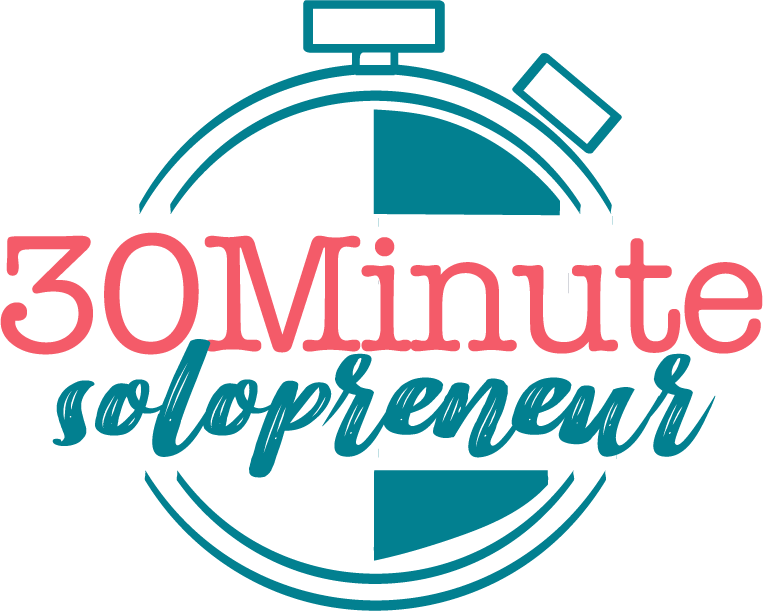Uncover Your Personal Time Management System
Chances are you waste time in both your personal and your business life. In some cases, you are definitely procrastinating, in others you simply don’t have processes or systems in place that allow you to be as efficient as you can.
How can you address time-wasting habits in your business? This is a question every solopreneur needs to ask him- or herself when sitting down to plan the tasks for the day or the week or even longer term.
If you don’t have good efficiency and effectiveness habits in place, your business will experience a slow bleed of productivity.
Instead of “punishing” yourself for not getting through your to-dos or leaving the office with tasks left undone, reward yourself for those jobs you complete.
I am not going to say, this time management system is better or more effective or efficient than the other. Time management, the calendar you use, the way in which you measure your effectiveness and efficiency are as unique as you are. What you need to do is find a method to be effective and efficient, tweak it to be uniquely yours then commit to it.
Here are a few of the time management and productivity systems that are available and I admit I have tried many of them – for both research purposes and to find my personal favorites.
The Tony Robbins RPM (rapid planning method) in which he focuses on prioritizing tasks to meet long-term goals. The system is based on:
Capturing the tasks and ideas
Chunking the work to get those tasks done
Creating RPM blocks of time in your day to address those to-dos
Time-blocking is a productivity method in which you choose a block of time and focus on a particular task. For example: 11 am to 1 pm – write blog posts. This is all well and good until you take the Pareto Principle into consideration. Pareto’s Principle finds that a “task will expand to fill the time allotted.” In the two hour blog time block – I could write one blog post that could take me two hours or perhaps I could write four blog posts within those two hours. If I were to time-block I would allot the two hour time block and also add in the number of blogs I hope to accomplish.
SMART goals (specific, measurable, action-oriented, relevant and time-bound ((deadline oriented)). SMART goals work well if you’re working on a large project. For example, “write a book.” In that example you could very easily apply SMART goals to break this project down into bite-sized chunks until the book is, in fact, written.
Efficient and Effective
The way I’ve found that is most effective for me is to sit down at the beginning of each month and make note of EVERYTHING I need to do that month. I then make note of any deadlines attached to specific client projects; once the deadlines are attached, I prioritize items into the days of the week and the weeks of the month.
On my calendar for each day I also make note of day-specific tasks as well as making note of “do client social media posting” for example or “work on help desk” so I don’t forget to do a specific item. I also take a great feeling of pride in crossing items off my list at the end of the day.
My calendar is a running to-do list into which I drop prioritized client work as well as outside meetings, babysitting gigs with my new grandbaby and other personal and business appointments.
Having a running visual of what I need to do and what I have done gives me a great sense of accomplishment. It also points out those days in which I have spent far too much time watching The Middle instead of working; when I do that I know the next day I will have to migrate tasks and add them to the next day’s totals.
What keeps you on track? Do you need help being more effective? Is efficiency a goal for the new year? Let me know. I have ideas!
Bottom line on effectiveness:
Create goals that let you see the big picture
Decide whether you feel more accomplished getting the quick and easy tasks out of the way or if jumping into a time-intensive task and knocking that off your list will help you feel more effective. Remember, even if you have a difficult task ahead, putting it off won’t make it go away, it will just drain your mental energy.
Break big tasks into smaller ones (remember the “write a book” example?)
Get rid of distractions. Turn off the TV (note to self!). Turn off email and social media notifications.
Get out of the multitasking mindset. You do not get more done if you multitask. You are not a more efficient entrepreneur if you do bits and pieces of an entire task. In fact, when you multitask, each project you’re dabbling in suffers
What is your personal time management system? I’d love to hear what makes you most effective and efficient and how you’re becoming a #30MinuteSolopreneur

